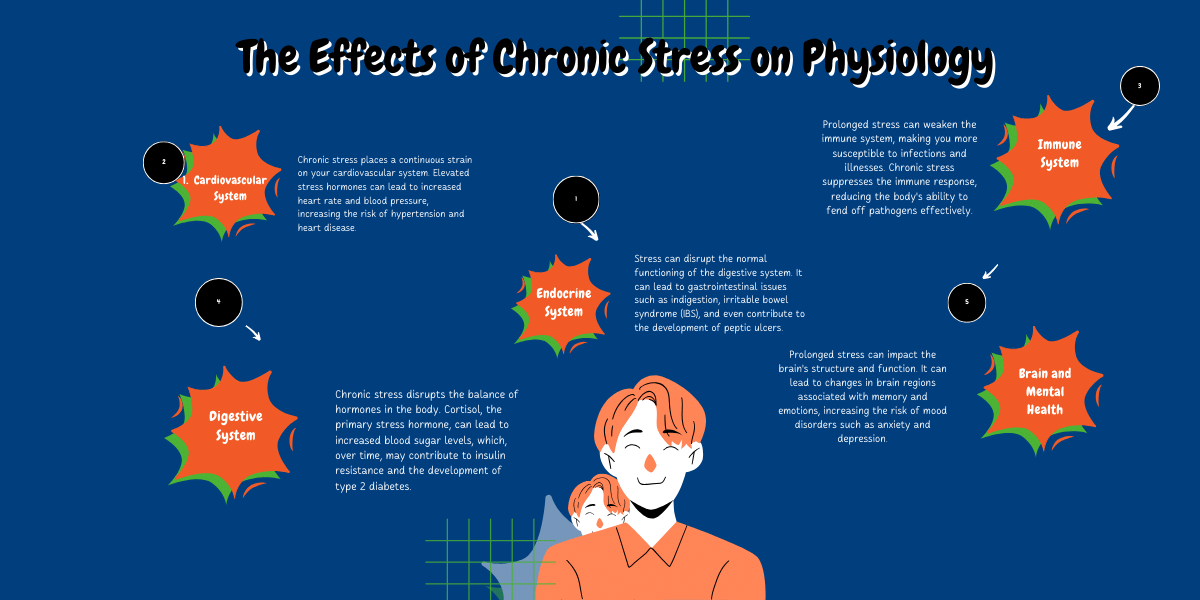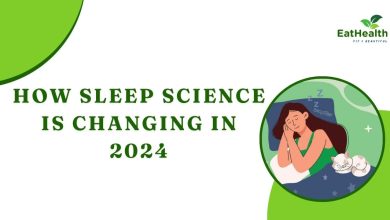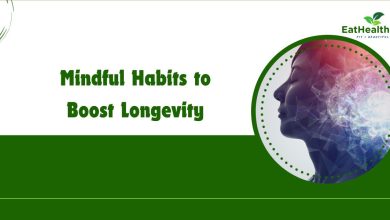Chronic Stress: How It Affects Your Physiology
Unraveling the Physiology of Chronic Stress: Impact on Your Well-Being
Chronic Stress: How It Affects Your Physiology

In today’s fast-paced Modern world, stress has become an unwelcome companion for many people. Occasional stress is a natural response to challenging situations, but when stress becomes chronic, it can have a profound impact on your physiology and overall health. This blog post delves into the complex relationship between chronic stress and your body’s physiology, shedding light on the mechanisms that underlie its effects.
The Stress Response: A Brief Overview
When you encounter a stressful situation, your body activates the “fight or flight” response, a physiological reaction designed to help you deal with immediate threats. This response involves the release of stress hormones, such as cortisol and adrenaline, which increase heart rate, sharpen focus, and mobilize energy reserves.
The Effects of Chronic Stress on Physiology
-
Cardiovascular System
Chronic stress places a continuous strain on your cardiovascular system. Elevated stress hormones can lead to increased heart rate and blood pressure, increasing the risk of hypertension and heart disease. Over time, chronic stress can contribute to the development of atherosclerosis (narrowing of the arteries) and an increased risk of heart attacks and strokes.
-
Immune System
Long-term stress can erode your immune system, leaving you more prone to diseases and infections. Chronic stress suppresses the immune response, reducing the body’s ability to fend off pathogens effectively.
-
Digestive System
The digestive system’s regular operation can be interfered with by stress. It can lead to gastrointestinal issues such as indigestion, irritable bowel syndrome (IBS), and even contribute to the development of peptic ulcers. In addition to affecting appetite, stress can cause overeating or undereating.
-
Endocrine System
The body’s hormone equilibrium is upset by ongoing stress. Cortisol, the primary stress hormone, can lead to increased blood sugar levels, which, over time, may contribute to insulin resistance and the development of type 2 diabetes.
-
Brain and Mental Health
Prolonged stress can impact the brain’s structure and function. It can lead to changes in brain regions associated with memory and emotions, increasing the risk of mood disorders such as anxiety and depression. Chronic stress is also associated with cognitive decline.
-
Sleep Disturbances
Stress often leads to sleep disturbances, including difficulty falling asleep and staying asleep. Stress might worsen if you don’t get enough rest, which starts a vicious cycle.
Coping with Chronic Stress
Managing chronic stress is crucial for maintaining overall health and well-being. Strategies such as regular exercise, relaxation techniques, mindfulness meditation, and seeking support from friends, family, or a mental health professional can be effective in reducing the impact of chronic stress on your physiology.
Conclusion
Chronic stress is more than just a mental and emotional burden; it’s a physical one as well. Understanding how chronic stress affects your physiology highlights the importance of managing stress effectively. By adopting healthy coping mechanisms and lifestyle changes, you can mitigate the negative impact of chronic stress on your body, leading to improved physical and mental well-being.




